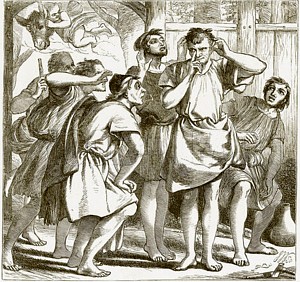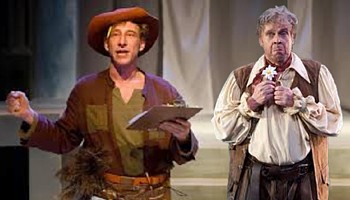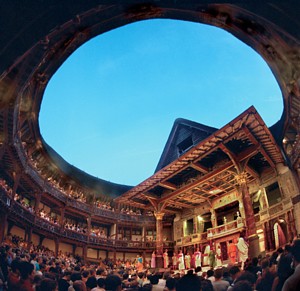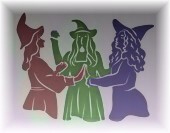8
and 6
Written
November 2023
I was watching the 1968 movie version of A Midsummer Night's Dream when a minor detail caught my ear.
|
At the beginning of Act III, we discover a group of working-class men who've somehow been chosen to perform at a duke's wedding. It's going to be a sophisticated crowd, well versed in the classics, so they compose a special play called The Most Lamentable Comedy and Most Cruel Death of Pyramus and Thisbe. |
|
One of them is a weaver named Bottom. (A hundred lines later, Bottom will magically become an actual ass.) He pipes up with a question for the director. “Peter Quince?”
“What sayest thou, bully Bottom?” responds the carpenter.
Saith the weaver, “There are things in this comedy of Pyramus and Thisbe that will never please. Pyramus must draw a sword to kill himself, which the ladies cannot abide. I have a device to make all well. Write me a prologue, and let the prologue seem to say we will do no harm with our swords.”
|
Quince agrees. “We will have such a prologue. And it shall be written in eight and six.” “No,” says Bottom, “make it two more. Let it be written in eight and eight.” |
|
Eight? Six? These numbers are obviously poet's jargon that the playwright understands, but I do not. Does Bottom envision the prologue as a sonnet? Hmm, could be. A Shakespearean sonnet does have eight lines followed by six. The uncultured ass must want to supersize the sonnet! He prefers 16 lines to a mere 14.
I checked my answer online. From across the pond in Sussex, “TabbyTom” has posted the real solution. Alas, it involves not the structure of a sonnet but the meter of a ballad.
“Alternating lines of eight and six syllables (rhyming AbAb) made up the traditional English ballad metre, while uniform eight-syllable lines (rhyming AABB) were favoured in romances. So Quince fancies a simple unsophisticated folksy ballad metre, while Bottom thinks that a more polished courtly romantic style is more appropriate.”
That makes sense. Not lines in a poem but syllables in a line.
However, when the incompetent Peter Quince composes the prologue, it's in ten and ten! And rhymed like a sonnet! I assume this is because Shakespeare preferred to write with ten syllables per line. It's called iambic pentameter, not tetrameter.
If we offend, it is with our good will
That you should think we come not to offend,
But with good will to show our simple skill.
That is the true beginning of our end.Consider then we come but in despite.
We do not come as minding to content you.
Our true intent is all for your delight.
We are not here that you should here repent you.The actors are at hand, and by their show
You shall know all that you are like to know.
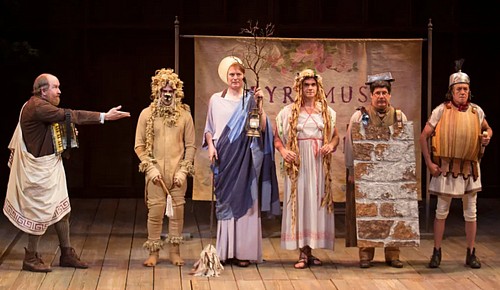
One wedding guest grumbles that Quince's rambling prologue is “like a tangled chain.” But that's all one; it is not done! And contrary to Bottom's request to avoid swordplay, Quince foreshadows the suicide with alliterative glee:
Whereat with blade — with bloody, blameful blade —
He bravely broach'd his boiling bloody breast.
Are all Shakespeare's prologues in pentameter? I examined a few that I could recall.
|
|
At
the beginning of Henry V, the Chorus alludes to the brand-new
venue on the south bank of the Thames, the round Globe Theatre.
He admits that to depict the clash of armies, even this stage is
unable to contain |
By the way, “vasty” is an example of a word that Shakespeare invented because he needed an extra syllable.
The same meter also appears in the famous prologue to Romeo and Juliet, which I parodied for this article.
However, in “the Scottish play” the witches do introduce the action using eight and eight (more or less). Their prologue is actually Scene 1.
|
|
The third “weird sister,” after a beat, has broken the spell by invoking the curse of superstitious actors everywhere. She has dared to speak the name! Upon hearing it, the witches' familiars apparently start to howl offstage, and the sisters answer them in an awkward meter appropriate for a theatre in polluted London.
I come, Gray-Malkin. Paddock calls. Anon!
FAIR IS FOUL, AND FOUL IS FAIR!
Hover through the fog and filthy air.
